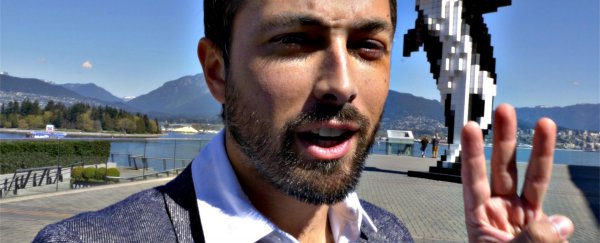As we grow up, become adults and get real jobs, there's a pervasive assumption that there are certain things beyond our control. You know, some people just happen to be in the right place at the right time, or always seem to have the right family connections. A good deal of our success comes down to luck, right?
Actually, no. As Derek from Veritasium explains in his new video, we're in control of a whole lot more than we think, but our brains are wired to assume we're helpless.
This is a psychological phenomenon known as 'learned helplessness', and although you may not have heard of it before, Derek explains that, for many of us, it could be having a huge effect on whether or not we take action in life, or on what we think is possible.
The phenomenon was discovered decades ago during some pretty brutal experiments on dogs, where they were subjected to punishments, such as receiving electric shocks. One group was unable to escape or do anything to avoid these punishments, while another group could perform some action, such as pushing a lever or jumping over a low fence, to prevent them.
When the researchers performed follow-up experiments and gave all the dogs a clear escape route, the dogs that had been part of that first group still just sat there and endured their punishment, even though they could very easily avoid it. The scientists had to physically move them away from the shocks at least twice before the dogs realised it was in their power to escape their suffering. In other words, they had learned helplessness.
Studies in human adults show that a similar phenomenon is in play, where participants were asked to complete a task while exposed to an annoying sound. One group had the power to turn the noise off, while the other didn't. Regardless of whether or not the first group actually turned off the sound or not, they performed better than the second group, simply because they knew they had control over the situation.
So what does this have to do with you? Well, as Derek explains, it turns out that a lot of us - himself included - endure suffering and avoid taking action, because society hammers home to us from a young age that we don't really have control over our lives.
But the good news is that there's a way to change this. Watch the video above to find out how, and be prepared to be inspired.
